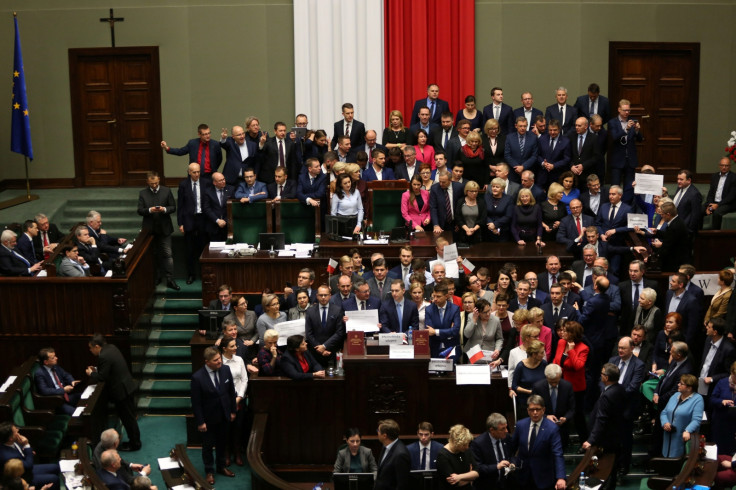Poland scraps controversial media restriction plan after demonstrations
This is the second time when the ruling PiS has backed away from a controversial plan due to protests.
Poland's governing Law and Justice party (PiS) dropped the plan to impose restrictions on media access in parliament, which had triggered street protests and an outcry from the opposition, President Andrzej Duda said on Monday (19 December).
The decision is being viewed as a victory for the opposition politicians and activists who staged demonstrations since Friday against the government's plans to restrict access for media to cover debates and proceedings.
Duda in an interview on Poland's TVP public broadcaster said the PiS "has abandoned its (media) proposal which triggered the row we saw in parliament... Everything has been reset".
Duda reportedly held an emergency meeting with top ruling party members, including the chairman Jaroslaw Kaczynski.
The plans would have restricted access to the parliament's press gallery to only two journalists for every media outlet, and ban them from shooting still pictures or video, according to an AFP report.
The president said that the measures would have helped the media organise their work better but he also admitted that it was too divisive. "We must ensure citizens' access to information about the work in parliament," he was quoted as saying by AP.
Senate speaker Stanislaw Karczewski, a member of the governing party said that the old media rules would stay in place for the time being and that he would bring new proposals to the table by 6 January.
This is the second time that PiS has backed away from controversial plans due to street demonstrations. The party also withdrew a disputed measure of a complete abortion ban in October, after women dressed in black protested across the country in huge numbers.

© Copyright IBTimes 2024. All rights reserved.





